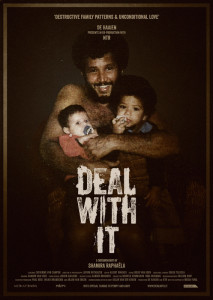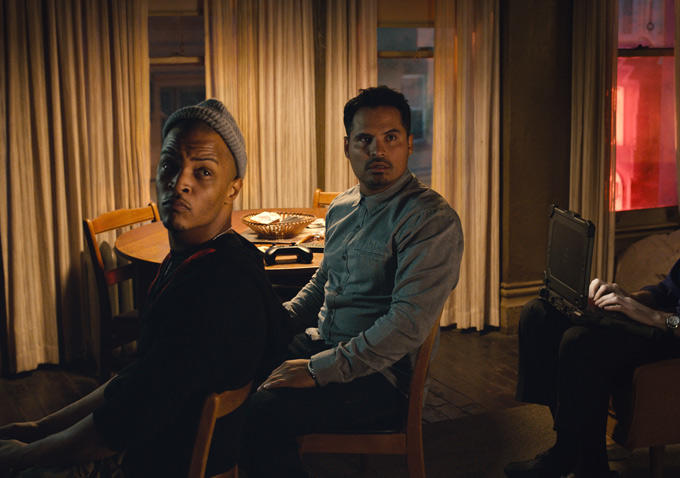Black movies came thundering through Hollywood in the 1990s. Films like Boyz n the Hoodand Menace II Society gave the world a glimpse into inner city African-American life. Meanwhile, movies like Waiting to Exhale and Soul Food gave audiences a window into the lives of professional black women. Despite this new wave of Black cinema, romance films with African-American casts had not yet made their appearance.
Love Jones and The Best Man broke the mold by showcasing the trials and tribulations of black love. However, when it came to putting the first inklings of love and sensuality on screen outside of dangerous environments, young black people —teens, in particular, had to look toward mainstream films like She’s All That or 10 Things I Hate About You for some sort of connection. Black characters may have been sprinkled throughout these films —but they certainly weren’t the central focus.
In 2000, Gina Prince-Bythewood shattered the standard for romance, black love, and sensuality in cinema with her acclaimed drama, Love & Basketball. Set in the early ’80s and moving into the ‘90s, Monica (Sanaa Lathan) and Quincy’s (Omar Epps) romance begins at age 11 when Monica and her family move next door to Quincy’s. Rambunctious and feisty pre-teens— the pair have an instant rivalry and mutual respect because of their shared love of basketball.
From the moment the film opens with Al Green’s “Love and Happiness” spinning in the distance, these kids speak the same language. As they step into their teen years, Monica and Quincy’s admiration for one another grows—as does something a bit more sensual that begins to burn under the surface. However, basketball, the politics of gender, and the perils of adulthood start to crack the foundation of their love and friendship.
The best romance films speak to our souls because our investment and the love we have for the characters tug at our hearts, and awakens some common connection we have in our own lives. Monica and Quincy’s story builds over four quarters (like a basketball game) instead of a meet-cute, confrontation, and resolution told over three acts. Instead, writer/director Prince-Bythewood takes the time to reveal the characters in all of their beauty, humanity, desires, and internal conflicts.
By the Second Quarter at age 18, both Quincy and Monica are formable basketball players with vastly different styles on the court. While Quincy seems to float across the hardwood flooring, Monica is vicious in her defense and offense. As she dribbles down the court, the audience is privy to her inner-dialogue, and her desperate desire to prove herself as one of the best players out there, regardless of gender.
Historically, women have never been allowed the full emotional capacity for sportsmanship. As a result, Monica’s constantly attitude gets her in trouble during games, and further alienates her from her traditionally-minded mother, Camille (Alfre Woodard).
Quincy also has a lot to live up to. His father Zeke (Dennis Haysbert) is a pro-basketball player whom he idolizes. As Quincy matures — the facade that Zeke has built around himself as a father and a husband begins to unravel, threatening to break Quincy’s spirit and perception of self. Though Quincy is king of their high school and Monica stands on the outskirts—their mutual passion has kept them connected over the years. Through Prince-Bythewood’s lens, they are constantly orbiting around each other. At night, instead of listening to his parents fight, Quincy crawls out of his bedroom window and into Monica’s where she offers him a pillow, blanket, and space on her floor. His secrets remain safe with her. Also, it’s Quincy that Monica trusts when it comes to opening her recruitment letter from the University of Southern California (USC).
In the age of Barry Jenkins’ If Beale Street Could Talk, it seems stunning that sex and sensuality amongst black people was almost non-existent on screen up until the mid-’90s. Love & Basketball helped usher in a new era of black intimacy and desirability in film. For black women, regardless of socioeconomic background or religion –many of us been grounded in a tradition of silence when it comes to sex as a way to undermine stereotypes of hypersexuality. Black women have often been taught to suppress their sexuality, or we’ve been shamed into silence about physical needs and desires. It’s a mold that has slowly been chipped away in the last thirty years or so in popular culture.
In Love & Basketball, Prince-Bythewood presents sex as a celebratory act —a moment to be enjoyed. In Quincy’s arms —Monica is not merely desired, she’s also protected, and she never needs to be put on display. Sex scenes —especially when they are meant to capture a first-time encounter aren’t often given the care and consideration that should be expected of the experience. With Maxwell’s “This Woman’s Work” in the background Prince-Bythewood presents the beauty and candor of sex (with the visual use of a condom and verbal consent). Though we see Quincy’s reactions to Monica and her body — his appreciation, and reverence of her is evident —the experience is presented through her perspective. She isn’t an object to be ogled or placed on display. Instead, because the camera stays on her face, the audience is privy to her emotional state and the romance of the encounter.
Continue reading at The Spool.




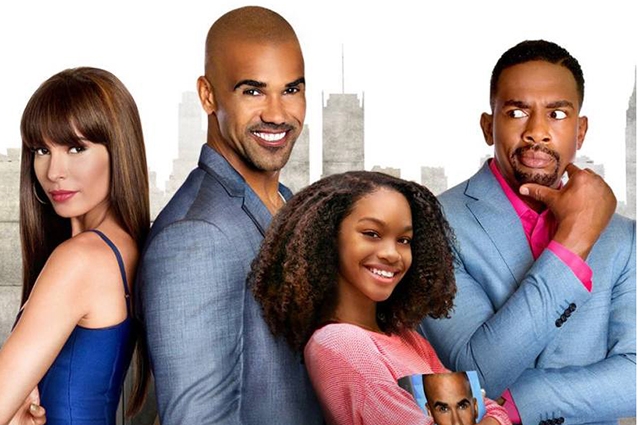 I’ll deny it if you ever bring it up in conversation, but the truth is, I have a pretty large obsession with romance novels. My Kindle is nearly bursting with them. It’s something about those inevitable plot points full of grand gestures and just a bit of conflict that put a smile on my face, even when the world is literally crumbling around me. Marking his first venture into producing, Shemar Moore’s newest film “The Bounce Back” felt exactly like returning to a favorite romance book.
I’ll deny it if you ever bring it up in conversation, but the truth is, I have a pretty large obsession with romance novels. My Kindle is nearly bursting with them. It’s something about those inevitable plot points full of grand gestures and just a bit of conflict that put a smile on my face, even when the world is literally crumbling around me. Marking his first venture into producing, Shemar Moore’s newest film “The Bounce Back” felt exactly like returning to a favorite romance book.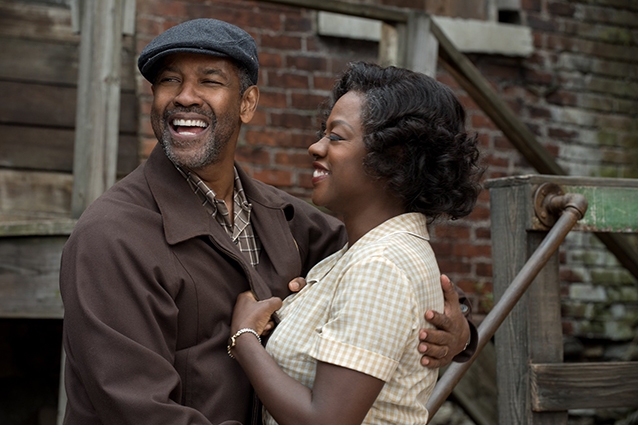 As a child, like most children I presume, I did not think of my parents as real people. They acted instead as my comforters and my providers, the people I stretched out my hands towards when I needed something. I was nearly out of the house before I considered what they might have given up; what dreams they may have sacrificed or brushed aside in the 60’s, the ’70s and ‘80s to provide my sister and myself with the best life that they could. For us, they moved through life often joyful but at times enraged; continually propping up a marriage that was long past its expiration date. Though I lived in their story with them, for the first part of my life, I observed as an outsider, labeling them as who they presented themselves to be instead of who they actually were. I, their eldest child, was guilty of not really seeing them in the full scope of their humanity.
As a child, like most children I presume, I did not think of my parents as real people. They acted instead as my comforters and my providers, the people I stretched out my hands towards when I needed something. I was nearly out of the house before I considered what they might have given up; what dreams they may have sacrificed or brushed aside in the 60’s, the ’70s and ‘80s to provide my sister and myself with the best life that they could. For us, they moved through life often joyful but at times enraged; continually propping up a marriage that was long past its expiration date. Though I lived in their story with them, for the first part of my life, I observed as an outsider, labeling them as who they presented themselves to be instead of who they actually were. I, their eldest child, was guilty of not really seeing them in the full scope of their humanity.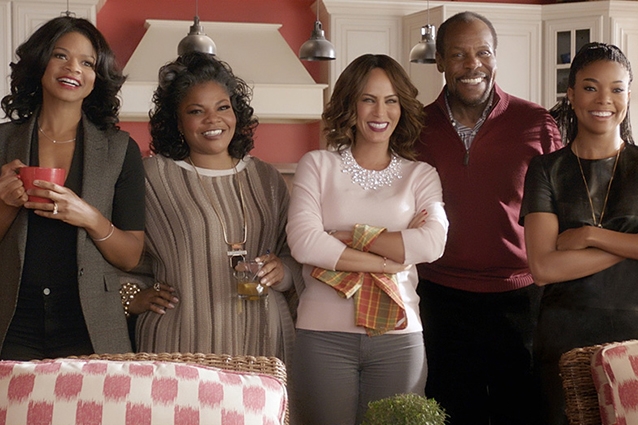 Holiday season movies are a time-honored tradition, but African American holiday season films exist in a genre of their own. From Malcolm Lee’s “The Best Man Holiday” to Preston A. Whitmore II’s “This Christmas,” the nuances of black life at the proverbial “most wonderful time of the year” have enraptured audiences for years. David E. Talbert’s latest entry “
Holiday season movies are a time-honored tradition, but African American holiday season films exist in a genre of their own. From Malcolm Lee’s “The Best Man Holiday” to Preston A. Whitmore II’s “This Christmas,” the nuances of black life at the proverbial “most wonderful time of the year” have enraptured audiences for years. David E. Talbert’s latest entry “
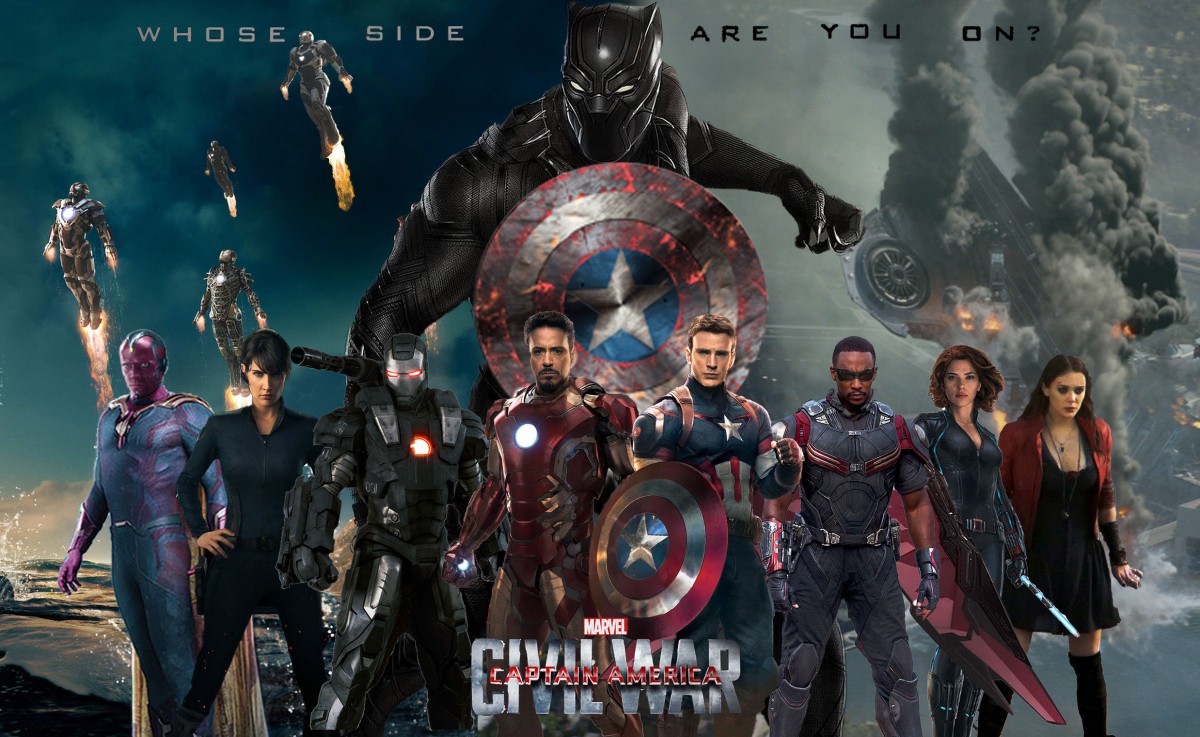 I’m a lightweight superhero fan, which means I’ve got no allegiance to the Marvel Cinematic Universe over DC Comics. Like any film lover, I simply enjoy a great story-line packed with even better action. However, screening “Captain America: Civil War” changed everything for me. By the time the film actually started —ten minutes behind schedule — the theater was so rife with anticipation that people were nearly fidgeting out of their seats. It was as if everyone but me knew just what we were about to experience.
I’m a lightweight superhero fan, which means I’ve got no allegiance to the Marvel Cinematic Universe over DC Comics. Like any film lover, I simply enjoy a great story-line packed with even better action. However, screening “Captain America: Civil War” changed everything for me. By the time the film actually started —ten minutes behind schedule — the theater was so rife with anticipation that people were nearly fidgeting out of their seats. It was as if everyone but me knew just what we were about to experience.
 When you're fifteen years old, the desire to fit in can be overwhelming. For some of us, if we're lucky, that carnal need to seek out the opinions of others fades slowly as we move further and further into adulthood. However, in adolescence, that thirst for approval is often tied to brand name material objects. For 15-year-old Brandon in Justin Tipping’s debut film "Kicks" that material object is a pair of black and red Jordan sneakers; the originals.
When you're fifteen years old, the desire to fit in can be overwhelming. For some of us, if we're lucky, that carnal need to seek out the opinions of others fades slowly as we move further and further into adulthood. However, in adolescence, that thirst for approval is often tied to brand name material objects. For 15-year-old Brandon in Justin Tipping’s debut film "Kicks" that material object is a pair of black and red Jordan sneakers; the originals.
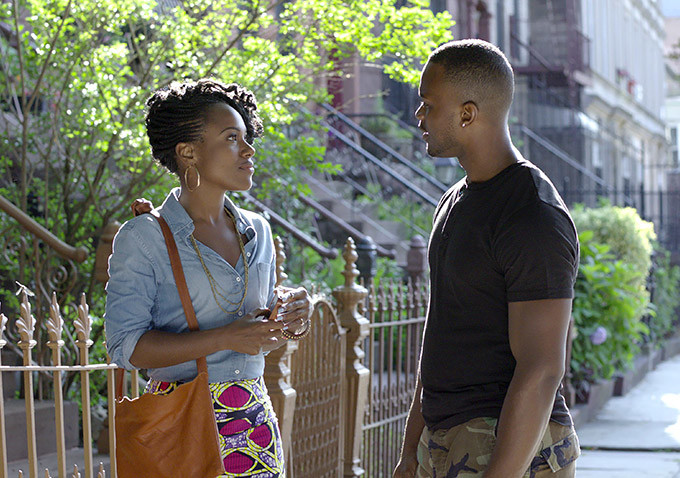 It was films like “Nothing But A Man,” “Love Jones” and “Love & Basketball” that made me fall in love with cinema. As a millennial, in the ‘90s there was “Love Jones”, a narrative of passion set against Chicago’s urban backdrop. Hopeless romantics and cynics alike watched as Nina Mosely and Darius Lovehall, desperately tried to figure out that thing called love. In the past decade (except for Gina Prince-Bythewood‘s “Beyond the Lights”) Black romance in film has fallen by the wayside in favor of buddy comedies or ensemble features. First time feature director Tahir Jetter’s “How to Tell You’re A Douchebag” has the potential to help reinvigorate the genre for the 21st century.
It was films like “Nothing But A Man,” “Love Jones” and “Love & Basketball” that made me fall in love with cinema. As a millennial, in the ‘90s there was “Love Jones”, a narrative of passion set against Chicago’s urban backdrop. Hopeless romantics and cynics alike watched as Nina Mosely and Darius Lovehall, desperately tried to figure out that thing called love. In the past decade (except for Gina Prince-Bythewood‘s “Beyond the Lights”) Black romance in film has fallen by the wayside in favor of buddy comedies or ensemble features. First time feature director Tahir Jetter’s “How to Tell You’re A Douchebag” has the potential to help reinvigorate the genre for the 21st century.
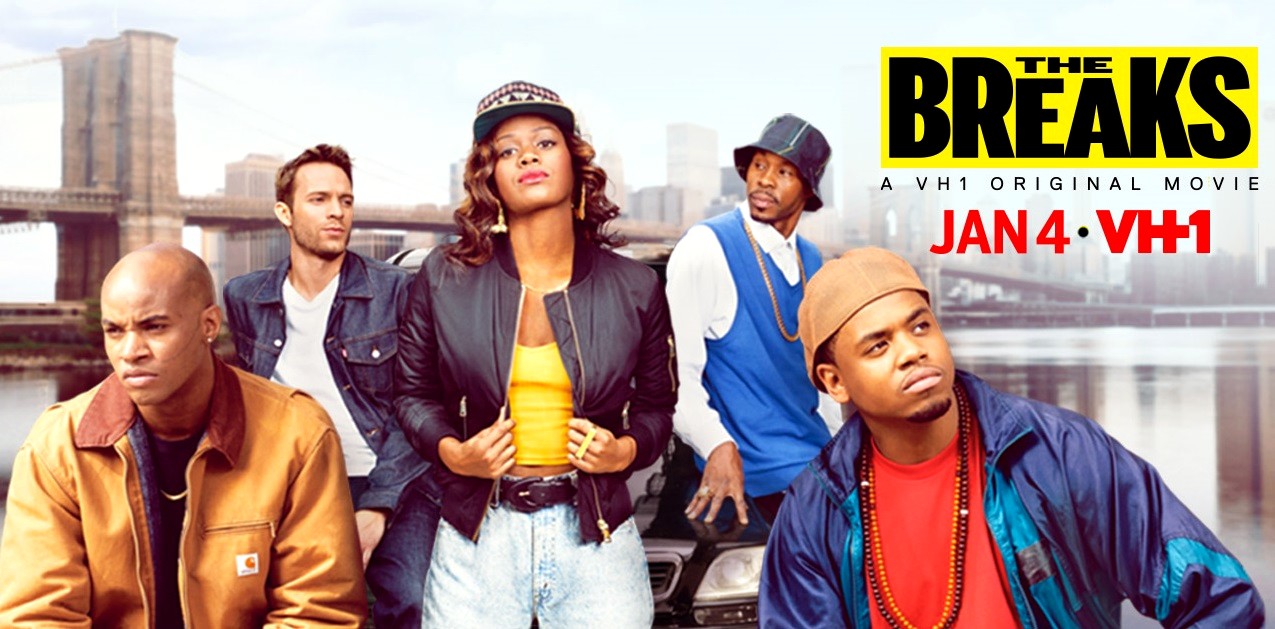 Whether you were born and raised in New York, or you arrived with nothing but a dollar and some dreams, the city will humble you with a quickness. It’s a town that demands wits, ingenuity and fearlessness; no matter what industry you’re tying to break into. In order to make it here, you have to be a doer and a hustler, or else, opportunities will simply pass you by. I’ve lived in NYC for seven years now, and the hustle mentality is something I’m still learning every day.
Whether you were born and raised in New York, or you arrived with nothing but a dollar and some dreams, the city will humble you with a quickness. It’s a town that demands wits, ingenuity and fearlessness; no matter what industry you’re tying to break into. In order to make it here, you have to be a doer and a hustler, or else, opportunities will simply pass you by. I’ve lived in NYC for seven years now, and the hustle mentality is something I’m still learning every day.
